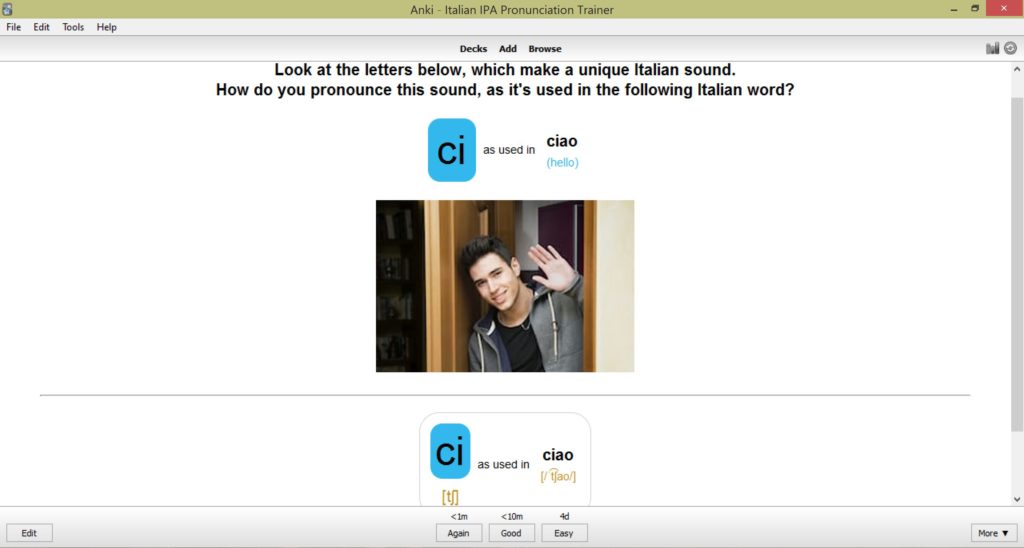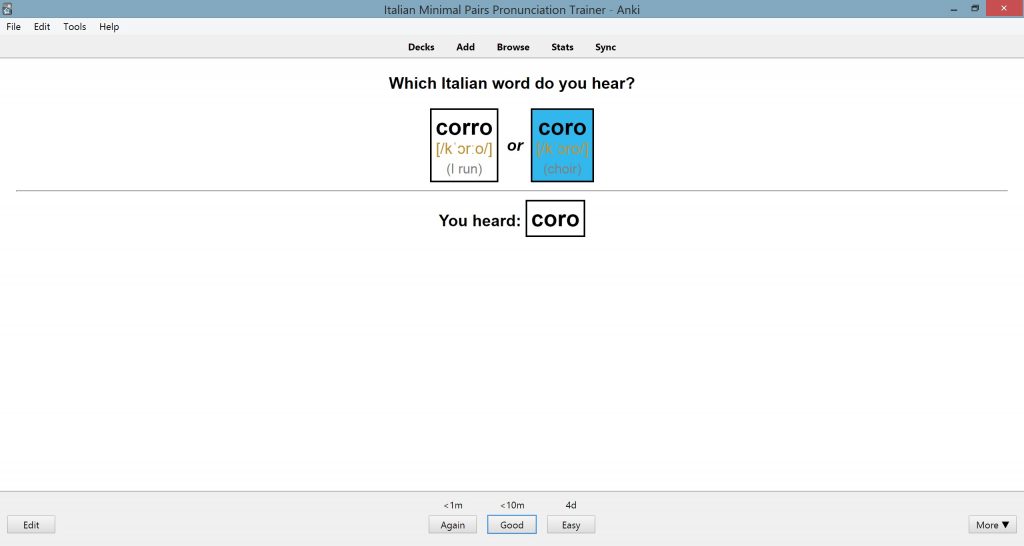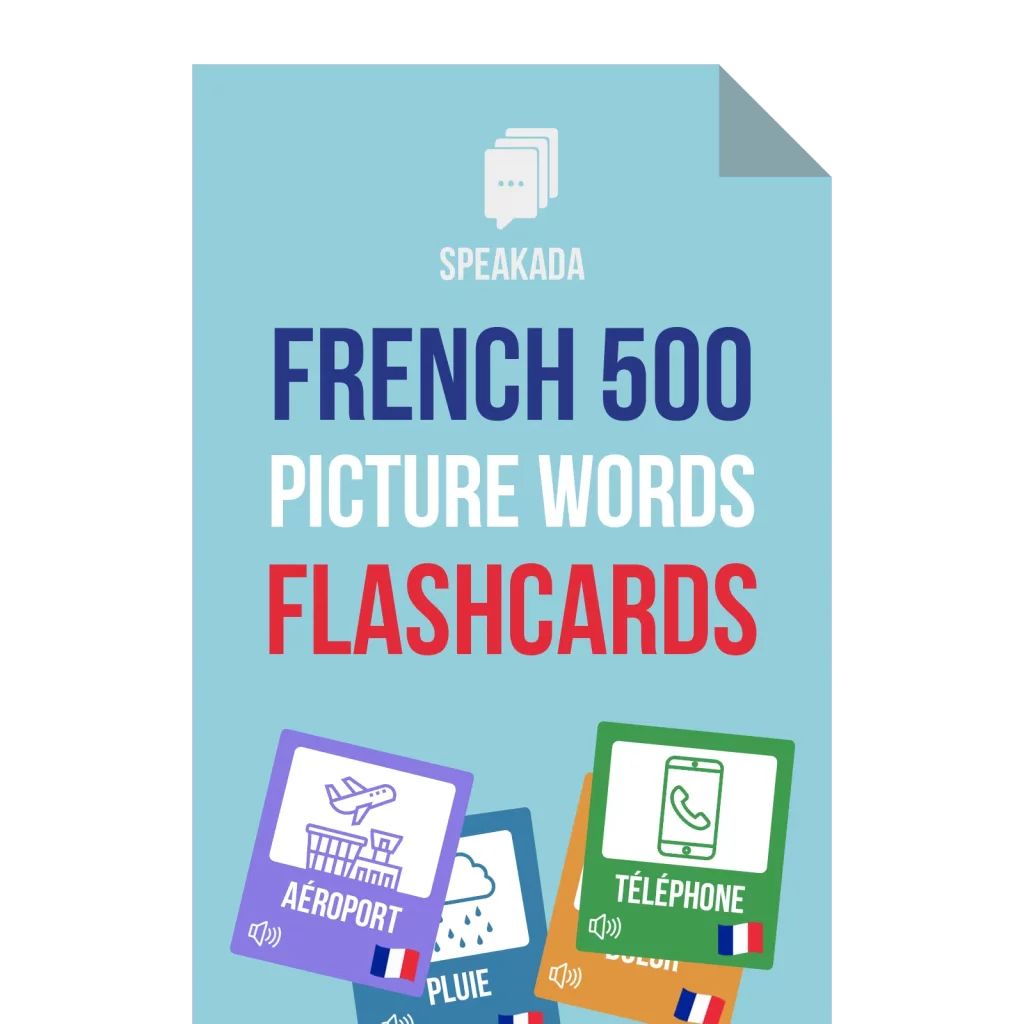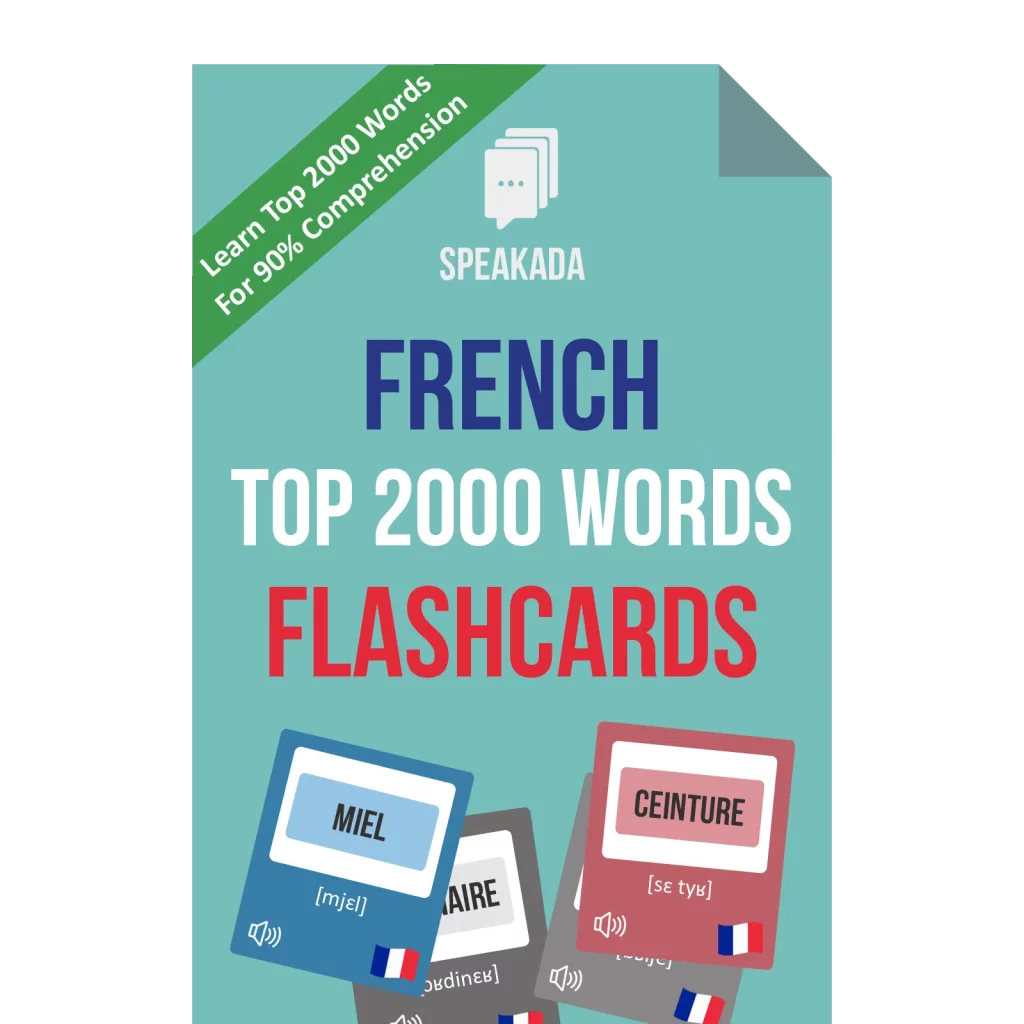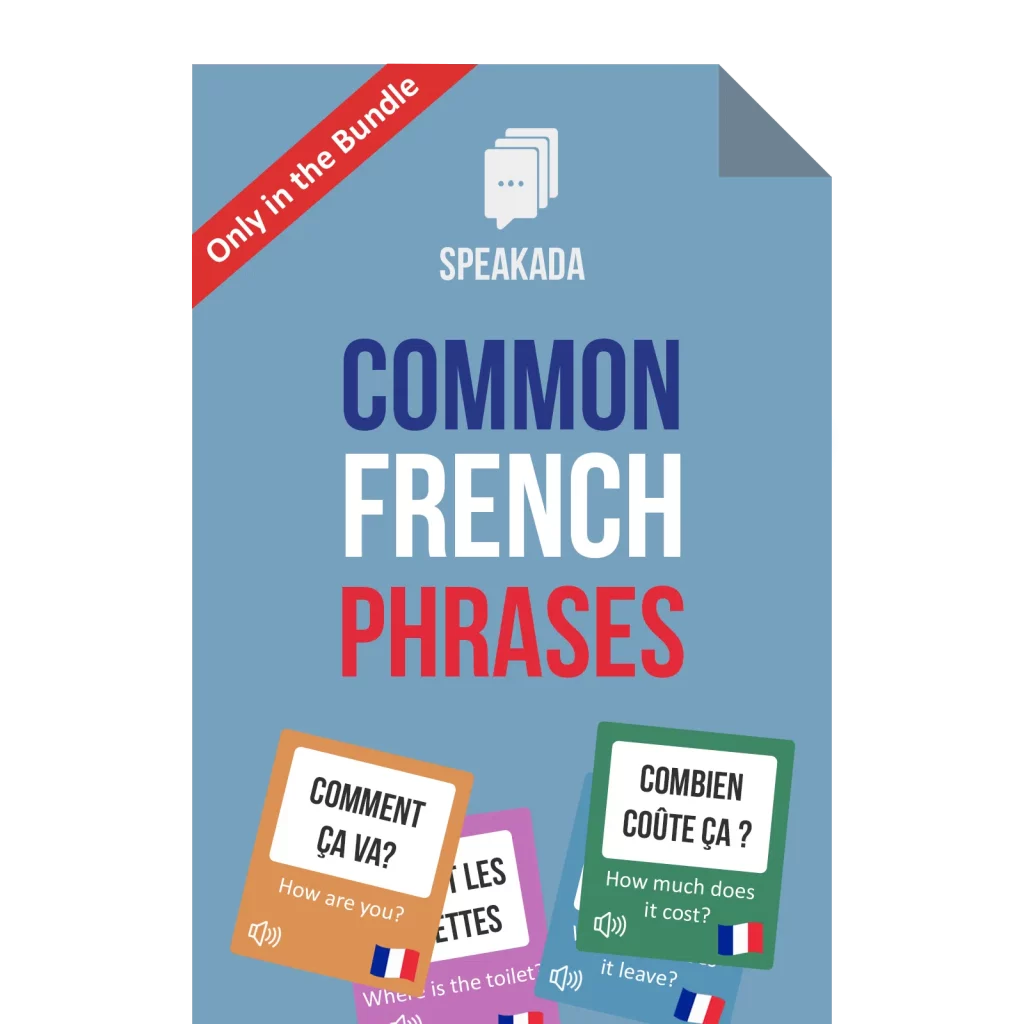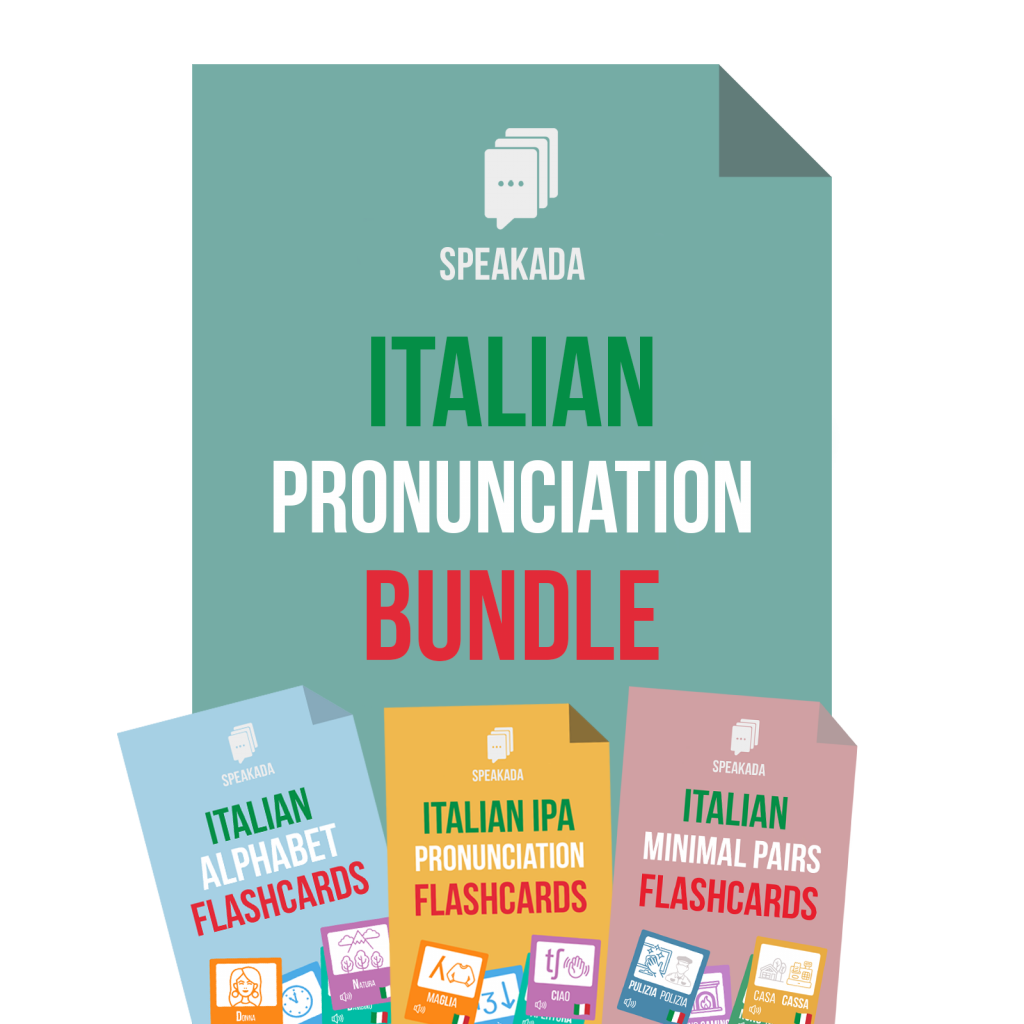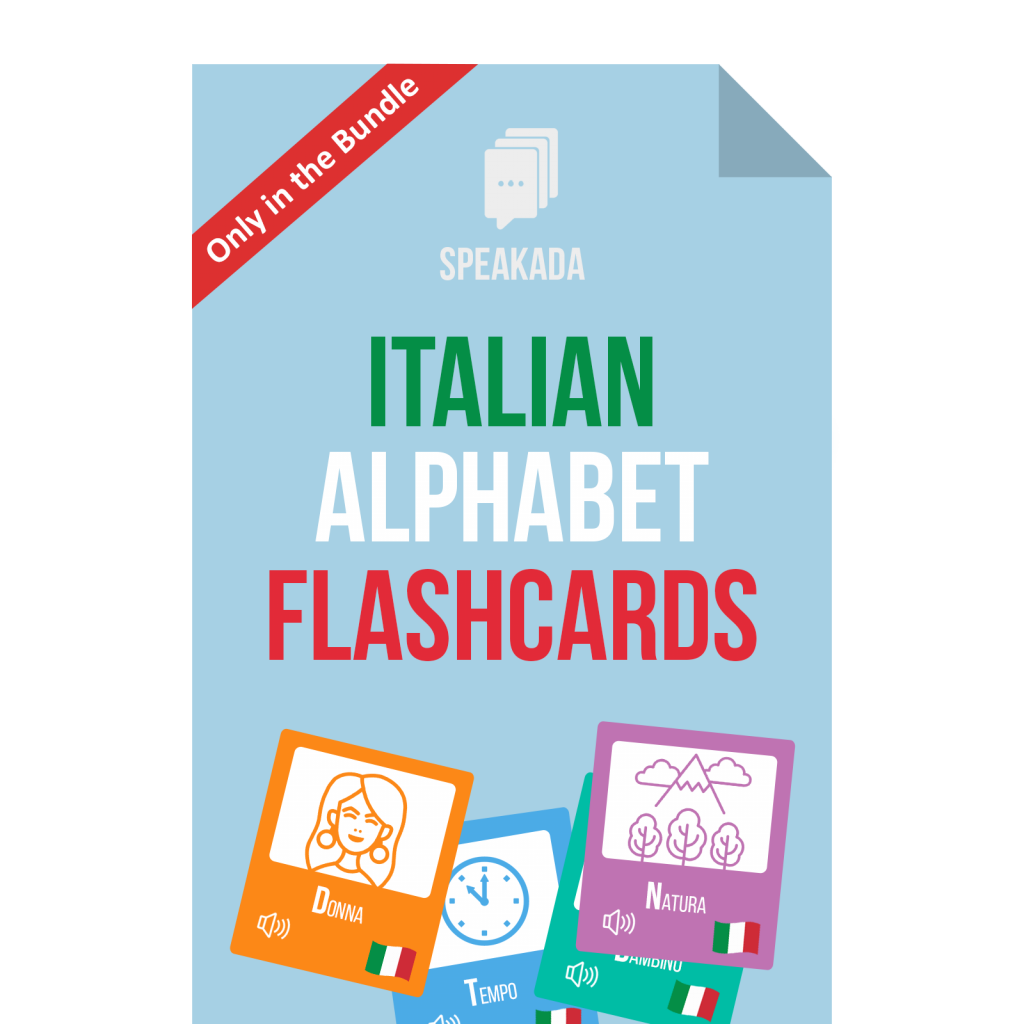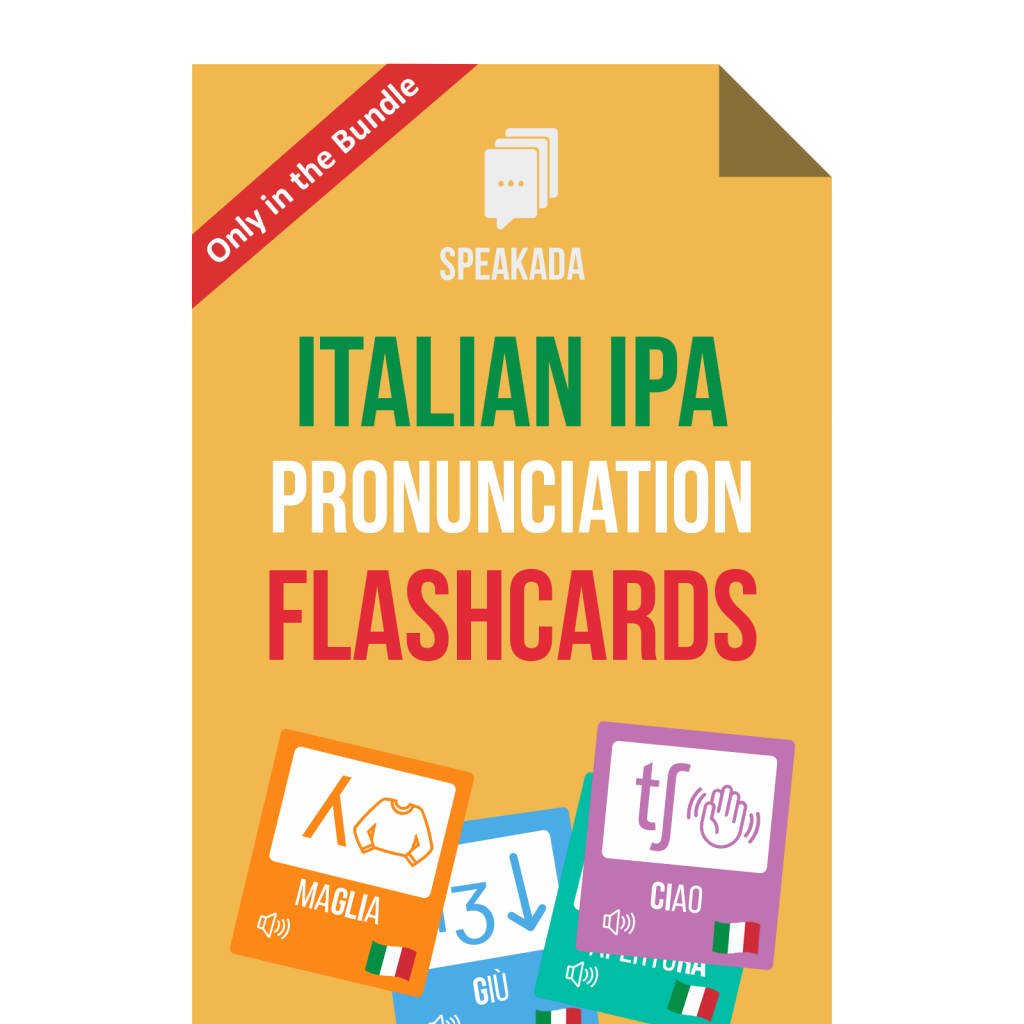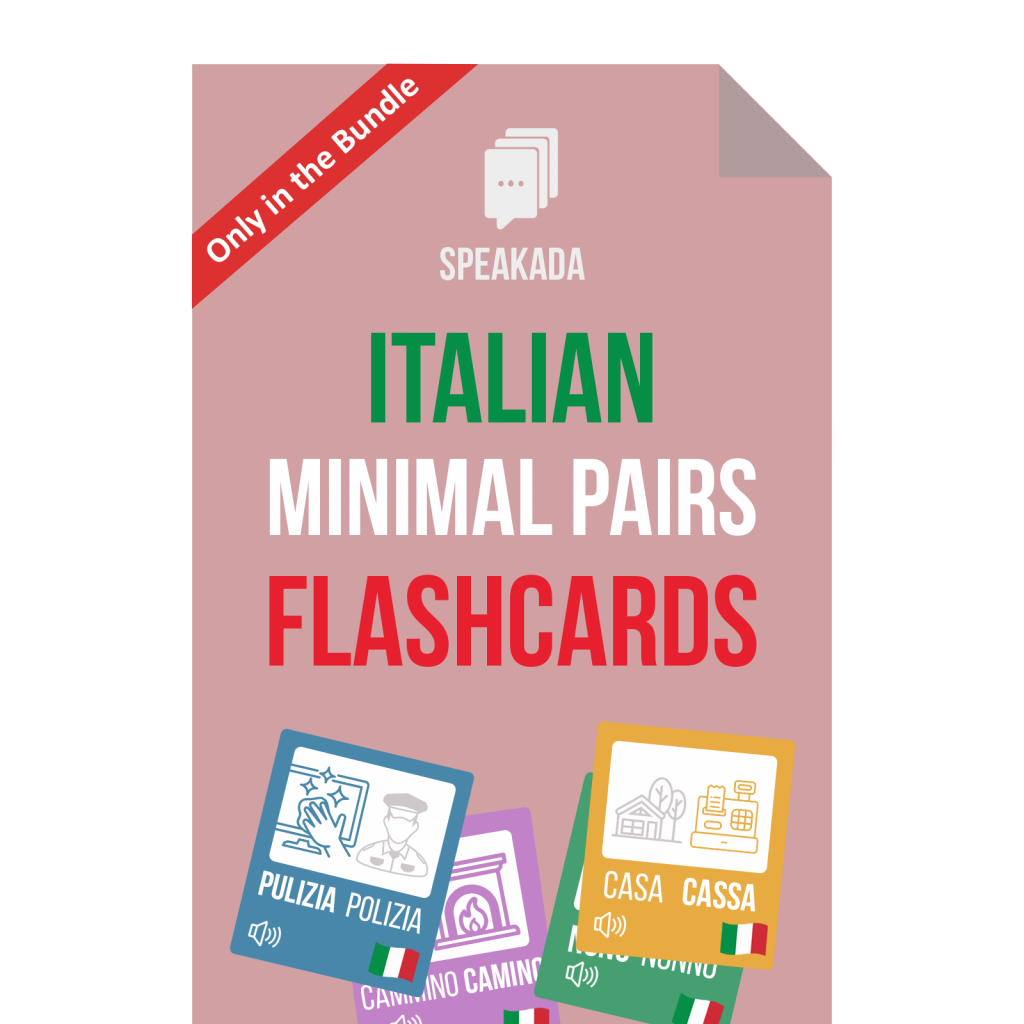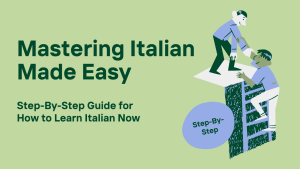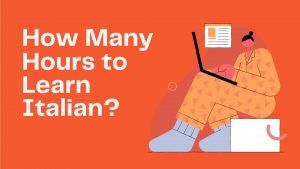How to Pronounce Italian Words
Although the Italian language is similar to English in some respects, many Italian learners still find that Italian pronunciation is very difficult. If you are wondering how to pronounce Italian words and how to make sure you pronounce them well, then this article is for you.
I’ll give you 4 tips to help you pronounce Italian words like a native Italian speaker. These tips are useful if you’re stuck with a certain Italian word that you want to pronounce. Maybe you just don’t know how to pronounce it well or you’re unsure whether you’re saying the Italian word correctly.
1. Ask a Native Speaker
Italian native speakers are a great resource to help you with Italian pronunciation. Let’s say you encounter a Italian word you don’t know how to pronounce. The first thing you can do is you could ask a native speaker for help.
Native speakers are great examples of how to use the Italian language in real life. Therefore, we recommend that you learn to mimic native speakers and how they pronounce Italian words.
If you have a friend or family member who is a Italian native speaker, then you can ask them how to pronounce words in Italian. This is a great way to learn how to pronounce Italian words like the way a native speaker would naturally pronounce them.
Don’t worry if you don’t know any Italian native speakers personally, as there are other options available. For instance, you could use an online language learning platform where you can connect with other Italian native speakers such as iTalki or Preply and more.
While some language tutoring platforms are paid, there are also free alternatives such as online language exchanges, such as Conversation Exchange and Tandem. In a free online language exchange, you help a Italian native speaker learn English, and in return that Italian native speaker will help you learn Italian, including Italian pronunciation.
2. Listen to Audio Pronunciations Online
Sometimes it can be difficult to find a native Italian speaker who is available to help you. There might be no Italian speakers or very few of them in your area. Or you may be too busy to schedule a time to speak with a Italian native speaker online or offline.
If you’re still having trouble pronouncing certain Italian words, then another option is to find the audio pronunciation of those words online. There are websites, such as Forvo or online Italian dictionaries, that have the Italian pronunciation of words recorded by native speakers. Google also has a free pronunciation guide here. These are completely free to use and can be an easy way to learn how to pronounce Italian words.
You can listen to the audio of the Italian pronunciation to make sure you hear all of the sounds. Then you can practice with that audio, by mimicking the native speaker’s pronunciation. Next, you can listen to the audio and repeat it several times until you’ve really got that pronunciation down pat.
3. Learn the Italian IPA
A third suggestion is for you to learn the Italian IPA, the International Phonetic Alphabet. In fact, you may have already encountered the International Phonetic Alphabet in certain Italian dictionaries. You can usually see the IPA next to each Italian word entry in a dictionary.
The International Phonetic Alphabet is a standardized representation of how words in Italian and other languages are to be pronounced. The IPA looks very similar to the regular alphabet, but you may have noticed that the IPA has particular lines or special characters over or around the letters. The special letters of the IPA are standardized across different languages to represent certain sounds, and proper Italian pronunciation can be represented by this IPA.
So, you can use the Italian IPA yourself if you are having trouble with pronouncing specific Italian words. Whenever you come across a Italian word that is difficult to pronounce, you can go and look up its corresponding IPA to help you pronounce it correctly.
You will find that the IPA can be so important because there will be times when you’ll encounter a Italian word that is spelled a certain way. But it can be difficult to figure out how to pronounce that word based simply on its usual Italian spelling.
This is because often there are different ways to pronounce combinations of letters. Sometimes there aren’t any clear patterns and connections between the usual spelling of a Italian word and the way that the word should be pronounced.
Nevertheless, each Italian word actually has a way to be spelled using the Italian IPA and this tells you how you should pronounce it. So it does help to learn the Italian IPA.
If you learn the Italian IPA, then you’re able to understand which sounds you’re supposed to produce for any given Italian word. That’s because for each unique sound of the Italian IPA, you’ll be able to figure out how your mouth is supposed to move, where to position your tongue, teeth and lips. To learn the Italian IPA, you can use an Anki Italian IPA flashcard deck, which will allow you to memorize the Italian IPA and help you learn Italian pronunciation more easily and more effectively.
Once you learn the Italian IPA, you can use this tool to look up the IPA of any Italian word. You’ll have greater confidence to speak Italian as you’re more able to pronounce Italian words correctly.
4. Use Italian Minimal Pairs
The final tip is to use Italian minimal pairs. Minimal pairs are two different Italian words that sound almost the same, but there’s just one sound that is different. Your goal with minimal pairs is to hear these two different sounds and to be able to distinguish which of those audios correspond to the correct audio.
Let’s take for example “corro” (I run) and “coro” (choir). These two words sound very similar however, have two completely different meanings. To be able to hear the differences and pronounce both words correctly can help you improve your Italian pronunciation.
Italian minimal pairs are a great way to hone in on your pronunciation and listening skills. In fact, there’s been a fair bit of research showing the benefits of minimal pairs for improving your pronunciation and comprehension in a second language.
An example is a study by Ann R Bradlow from Northwestern University (Illinois, USA) and other researchers. The researchers recruited several Japanese students from Doshisha University in Kyoto, Japan, who were learning English and trying to improve their English pronunciation. All students had problems with the ‘R’ and ‘L’ sound, so minimal pairs were introduced. The students were tested regularly with similar-sounding words. Then students had to distinguish the difference between the two sounds. Each student had to listen carefully and try to figure out which English word had the R sound and which one had the L sound.
This study showed that monolingual Japanese adults who were given intensive minimal pairs training improved in both perception and production of English R and L minimal pairs. In addition, researchers found that these Japanese trainees benefited from long-term retention of learning in both perception and production of the R and L sounds.. Results showed that 3 months after completion of the training, the Japanese trainees maintained their improved levels of pronunciation and comprehension.
This study can be applied to learning Italian pronunciation, too, as it demonstrates how effective minimal pairs training can be. If you are looking for Italian minimal pairs, there are flashcard decks available to help you improve your Italian pronunciation using minimal pairs.
Key Takeaway about Pronouncing Difficult Italian Words
Overall, there are many ways to help you learn how to pronounce Italian words. These include getting help from a Italian native speaker, using Italian audios online to listen to the Italian pronunciation, learning the Italian International Phonetic Alphabet and pronunciation training with the help of Italian minimal pairs.
You May Also Like

